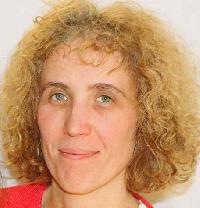| Pages in topic: [1 2] > | Are you a born translator or a well-skilled professional??? Thread poster: Ewa Nitoń
|
|---|
Ewa Nitoń 
United Kingdom
Local time: 19:10
English to Polish
+ ...
Dear Fellow Linguists,
I would like to engage all of us into a discussion about what is more fundamental the translation and interpreting theory and all strategies pointed by scholars or using senses and intuition only when the translation or rendition is produced? Do you really need to be a bilingual??? Is it any boundary where a linguist has to make the decision to forget about theory and rely on the intuition only??
Any though will be a huge help for my investigation... See more Dear Fellow Linguists,
I would like to engage all of us into a discussion about what is more fundamental the translation and interpreting theory and all strategies pointed by scholars or using senses and intuition only when the translation or rendition is produced? Do you really need to be a bilingual??? Is it any boundary where a linguist has to make the decision to forget about theory and rely on the intuition only??
Any though will be a huge help for my investigation and research; plus it will be good to know what you think about theory and practice nowadays.
I am looking forward to hear from you.
Ewa ▲ Collapse
| | | | Maria Popova 
Bulgaria
Local time: 21:10
Member (2011)
German to Bulgarian
| Translation is a skill | Mar 26, 2012 |
Dear Ewa,
Theory means nothing without practice. Translation is after all a skill which has to be developed and maintained. I myself rely on my intuition all the time and to be honest things from the theory are working for me only if they are connected with some practical experience. Translators are very much like surgeons. If they don't practice they loose their skills. To be a good translator you have to translate every day!
Cheers,
Maria
| | | | Ty Kendall 
United Kingdom
Local time: 19:10
Hebrew to English
| Theory & Practice | Mar 26, 2012 |
Cześć Ewa!
I think you'll find everybody has their own opinion on this. Personally, whilst I find a knowledge of the theory useful and/or interesting, it definitely is not the be all and end all of translation. I find the theory comes in handy more for strategies in solving certain linguistic/translation problems but other bits of theory are so abstract, so...theoretical that I find they hold little relevance or value in the day-to-day realities of translation.
If you... See more Cześć Ewa!
I think you'll find everybody has their own opinion on this. Personally, whilst I find a knowledge of the theory useful and/or interesting, it definitely is not the be all and end all of translation. I find the theory comes in handy more for strategies in solving certain linguistic/translation problems but other bits of theory are so abstract, so...theoretical that I find they hold little relevance or value in the day-to-day realities of translation.
If your knowledge of both the target and source languages is good enough, then instinct can be a more useful asset....although language instinct + (theoretical) knowledge can be a complementary combination.
Do you really need to be a bilingual
No, not at all, if you mean "bilingual" as in 'raised' in two languages. Bilingual people don't necessarily make good translators. A translator needs impeccable writing skills in their target language (better than the usual educated native speaker even). In the words of José Henrique Lamensdorf...
"A bilingual person is someone capable of expressing their own ideas in two different languages, while a translator is someone able to accurately express someone else's ideas in a different language."
As for boundaries and theory...it's the same really as any other field...theory is great, but it isn't a magic formula for success, the chasm between theory and practice should be acknowledged/respected. Even if you knew the theory by heart, it wouldn't necessarily make you a fantastic translator, just a good theoretician.
Basically, it just takes a bit of common sense to know when to forget the theory and trust your gut.
Good luck in your investigation and research.
Nara!
[Edited at 2012-03-26 19:00 GMT] ▲ Collapse
| | | | neilmac
Spain
Local time: 20:10
Spanish to English
+ ...
| What, me worry? | Mar 26, 2012 |
My opinion, based on my own galloping ignorance, is that knowledge of translation theory is not a prerequisite to being a good translator in practice.
I really don't think I actually know much about translation theory myself... for example, I've been trying to finish Umberto Eco's "Mouse or Rat" for some years now, but half the time I have no idea what he's on about and I doubt whether I'll ever finish it, or understand some of the ideas he puts forward.
I do believe ... See more My opinion, based on my own galloping ignorance, is that knowledge of translation theory is not a prerequisite to being a good translator in practice.
I really don't think I actually know much about translation theory myself... for example, I've been trying to finish Umberto Eco's "Mouse or Rat" for some years now, but half the time I have no idea what he's on about and I doubt whether I'll ever finish it, or understand some of the ideas he puts forward.
I do believe that some people are born with a sort of predisposition towards language/s which, if nurtured, can help them find their niche working with languages in later life, whether teaching, editing, copywriting, translating... etc. I fall into this group, and was never any good at figures or science. Whether that counts for anything I don’t know. ▲ Collapse
| | |
|
|
|
Dave Bindon 
Greece
Local time: 21:10
Greek to English
In memoriam | Both, maybe? | Mar 26, 2012 |
I don't think there's any way to impose a mathematical formula on what makes a 'good' translator in terms of "Success = (2 x innate ability to master a native language) + (3 x ability to learn a 2nd language) + (knowledge of translation theory/2) + (1.5 x experience) - (4 x inability to communicate clearly)".*
[*the above factors were picked at random, and in no way reflect my considered opinion as regards the relative values of the aforementioned qualities!]
I wouldn't... See more I don't think there's any way to impose a mathematical formula on what makes a 'good' translator in terms of "Success = (2 x innate ability to master a native language) + (3 x ability to learn a 2nd language) + (knowledge of translation theory/2) + (1.5 x experience) - (4 x inability to communicate clearly)".*
[*the above factors were picked at random, and in no way reflect my considered opinion as regards the relative values of the aforementioned qualities!]
I wouldn't rule out the possibility of someone simply being 'born' (subject to subsequently learning at least two languages) with the abilities and flair needed to become a competent translator; nor would I rule out the possibility of somebody acquiring the same skills via hard study and much experience. But I think the reality is normally a mixture of the two: innate ability and experience. The two usually need to co-exist, although the degree to which either attribute influences the outcome is impossible to quantify.
I would categorise myself as being mostly a 'born translator': my reading ability in my native language was far above average by the time I started school, and I was learning Welsh and Greek by the time I was 10. Subsequent education and experience may have honed my skills, but I don't believe it had a profound effect on my skills as a translator.
There are, however, many very competent translators on Proz who do not seem to have shown any inclination towards foreign language acquisition until much later in life. Their lack of any obvious inherent ability does not detract in any way from their being well-skilled professional translators by virtue of their experience.
[Edited at 2012-03-26 19:48 GMT] ▲ Collapse
| | | | | Theory or practice? | Mar 26, 2012 |
If we speak about formal education - this is helpful at a extent you believe that you can cope with translation. When one tries to practice translation, it is helpful to have someone to criticize, and tell you what to do to become a serious translator. The same way it works for interpreting.
I learned interpreting after I became successful translator. Learned at my own. It means, I didn't receive ANY formal education and nobody sow nor cultivated one's skills in me. And that made my intuit... See more If we speak about formal education - this is helpful at a extent you believe that you can cope with translation. When one tries to practice translation, it is helpful to have someone to criticize, and tell you what to do to become a serious translator. The same way it works for interpreting.
I learned interpreting after I became successful translator. Learned at my own. It means, I didn't receive ANY formal education and nobody sow nor cultivated one's skills in me. And that made my intuition to work hard to develop the skills necessary. And I once realized, the simultaneous translation is far more convenient to me as I take off the burden to remember 'all-that-stuff'.  ▲ Collapse
| | | | Henry Hinds 
United States
Local time: 12:10
English to Spanish
+ ...
In memoriam
I have no knowledge whatsoever of translation theory because I have no academic background in the subject. I have learned everything I know through practice. I was certainly not born a translator, I had to become one; nor was I born bilingual, it was something I had to become, and it is an absolute requirement. With the effort I have put into it, I have become successful. It is just a matter of hard work.
| | | | Oksana Weiss 
Germany
Local time: 20:10
Member (2011)
German to English
+ ...
Henry Hinds wrote:
It is just a matter of hard work.
One of the Russian famous writers answering a similar question, said: "What an author needs is a hard ass to sit on for 10-12 hours a day". That's exact, altough a bit rough, description of our profession.
| | |
|
|
|
Parrot 
Spain
Local time: 20:10
Spanish to English
+ ...
| Language is acquired | Mar 27, 2012 |
Even your mother tongue is acquired. So I think we can cross out "born".
Then there are writing skills and/or speaking skills. Some good translators stutter, and conversely some good interpreters are not really excellent writers. I venture to say most translators are not bilingual, and certainly not all bilinguals even think about becoming translators. As for the term "linguist", it DOES allow for monolinguals... so maybe you need to fine-tune your universe sets.
But ju... See more Even your mother tongue is acquired. So I think we can cross out "born".
Then there are writing skills and/or speaking skills. Some good translators stutter, and conversely some good interpreters are not really excellent writers. I venture to say most translators are not bilingual, and certainly not all bilinguals even think about becoming translators. As for the term "linguist", it DOES allow for monolinguals... so maybe you need to fine-tune your universe sets.
But jump into a pool filled with practising translators/interpreters and you have a great variety of opinions. What I'm trying to say is, profiles are as varied as the people who fit the population.
Good luck! ▲ Collapse
| | | | Anne Pinaglia
Netherlands
Local time: 20:10
Italian to English
+ ...
| I would say it's somewhere in between | Mar 27, 2012 |
You're certainly not born with it, but certain behaviors adopted earlier in life - without even recognizing it - can make one person a better translator than another. And then, of course, there's just the luck of the draw.
I once read that in order to be a good translator, one must be a great writer. I couldn't agree more - in my humble opinion, writing skills are even more important than specific and extensive knowle... See more You're certainly not born with it, but certain behaviors adopted earlier in life - without even recognizing it - can make one person a better translator than another. And then, of course, there's just the luck of the draw.
I once read that in order to be a good translator, one must be a great writer. I couldn't agree more - in my humble opinion, writing skills are even more important than specific and extensive knowledge of terminology in the source language; terms can be learned over time (and found on the internet) but the ability to convey a message in a way that the reader would easily understand is key.
I've read plenty a translated document "by a mother tongue English speaker" that read like a translation from a non-native speaker. The right words were there, but the way it was written in English was too difficult to decipher at times. Therefore, it was a "bad" translation.
How to become a skilled translator? Translate, yes. But maybe more importantly, read - in both/all of the languages you use.
Can one become a better translator? Sure. But it doesn't all rest in academics, that's for absolute sure. ▲ Collapse
| | | | Phil Hand 
China
Local time: 02:10
Chinese to English
| Seem to be two different questions here | Mar 27, 2012 |
1. Translators: born or made?
2. Theory: useful or not?
On the theory question, I find it moderately useful, but I certainly don't think it's essential. Theory has prompted me to try some things that I might not have tried otherwise, and I think that's broadened my understanding of how I translate and how to translate better. But I don't think it's essential, by any means.
On the first question: I'd split it into two parts. First, translators must be good r... See more 1. Translators: born or made?
2. Theory: useful or not?
On the theory question, I find it moderately useful, but I certainly don't think it's essential. Theory has prompted me to try some things that I might not have tried otherwise, and I think that's broadened my understanding of how I translate and how to translate better. But I don't think it's essential, by any means.
On the first question: I'd split it into two parts. First, translators must be good readers, and I think that's something that comes with lots and lots of reading: made. Second, translators must be good writers, and there does seem to be an element of natural talent involved there. You can learn to be a highly competent writer (like me), but I've got to admit that some people just seem to have a flair, a turn of phrase, or a mind that organises sentences effortlessly into flowing paragraphs. What takes me three rounds of editing to achieve, some people seem to do without trying, damn them! So there is a certain amount of innate talent there. ▲ Collapse
| | | | Ty Kendall 
United Kingdom
Local time: 19:10
Hebrew to English
| Just noticed... | Mar 27, 2012 |
I didn't address the "born/made" divide in my last post.
Well, I am about as fond of innateness theories as I am of the concept of original sin. They're both codswallop.
I don't believe a baby is born with any 'natural' advantage over another or inclination towards language any more than they are born 'tainted' by the sins of Adam & Eve.
Fate plays a part in the early stages - the choices your parents make for you, the extent to which you enjoy reading/writ... See more I didn't address the "born/made" divide in my last post.
Well, I am about as fond of innateness theories as I am of the concept of original sin. They're both codswallop.
I don't believe a baby is born with any 'natural' advantage over another or inclination towards language any more than they are born 'tainted' by the sins of Adam & Eve.
Fate plays a part in the early stages - the choices your parents make for you, the extent to which you enjoy reading/writing as a child, the experiences you have which may predispose you to a career in languages etc
Later on your own choices and decisions take over - whether you choose to hone the relevant skills, whether you choose to expand upon an interest in languages etc.
The myth of a "natural born _______ " is just that, a myth. It's an expression we use to describe someone possessing remarkable talent in a particular field - as if hard work and perserverance count for nothing, but like most expressions, it shouldn't be taken literally. ▲ Collapse
| | |
|
|
|
Phil Hand 
China
Local time: 02:10
Chinese to English
| Not literal, but real nonetheless | Mar 27, 2012 |
Ty: I certainly agree that babies aren't born with a "writing gene". To say someone's got a talent for something isn't really to say it's innate, but that through a mysterious set of circumstances which can't be easily identified, that person seems to achieve greater levels of skill in a certain field than others while putting in less effort.
Perhaps in this genetics-obsessed age, we should be more explicit that differences in aptitude and achievement aren't (necessarily) innate; but they ... See more Ty: I certainly agree that babies aren't born with a "writing gene". To say someone's got a talent for something isn't really to say it's innate, but that through a mysterious set of circumstances which can't be easily identified, that person seems to achieve greater levels of skill in a certain field than others while putting in less effort.
Perhaps in this genetics-obsessed age, we should be more explicit that differences in aptitude and achievement aren't (necessarily) innate; but they do exist. ▲ Collapse
| | | | Neil Coffey 
United Kingdom
Local time: 19:10
French to English
+ ...
Ewa_Nitoń wrote:
Is it any boundary where a linguist has to make the decision to forget about theory and rely on the intuition only??
Remember that "translation theory" is the construction of models of What Translators Actually Do In Practice. In other words, it's translators who drive the theory, not the other way round.
Similarly, pandas don't study zoology in order to determine how to eat bamboo...
| | | | Kay Denney 
France
Local time: 20:10
French to English
| The innate ability feeds itself | Mar 27, 2012 |
Ty Kendall wrote:
I didn't address the "born/made" divide in my last post.
Well, I am about as fond of innateness theories as I am of the concept of original sin. They're both codswallop.
I don't believe a baby is born with any 'natural' advantage over another or inclination towards language any more than they are born 'tainted' by the sins of Adam & Eve.
Fate plays a part in the early stages - the choices your parents make for you, the extent to which you enjoy reading/writing as a child, the experiences you have which may predispose you to a career in languages etc
Later on your own choices and decisions take over - whether you choose to hone the relevant skills, whether you choose to expand upon an interest in languages etc.
The myth of a "natural born _______ " is just that, a myth. It's an expression we use to describe someone possessing remarkable talent in a particular field - as if hard work and perserverance count for nothing, but like most expressions, it shouldn't be taken literally.
Well my children were both born into the same multilingual family. At two my son had a vocabulary of 20 words (and counting of course). My daughter at that age was already forming complex sentences: her first fully formed question in English, age 23 months, was "When will I be big like S**?" The gulf between their skills has continued to widen with their schooling, but my daughter has shown a natural inclination towards language, reading, making an effort to express thoughts and feelings exactly from the outset that her brother never has (he has plenty of other talents). She reads for pleasure, he has only ever read books when told to. What I have seen is that the innate ability feeds itself. Which doesn't mean that my daughter won't have to work hard if she decides to study languages or literature of course.
(I do agree with you about Adam and Eve though!)
[Edited at 2012-03-27 20:54 GMT]
| | | | | Pages in topic: [1 2] > | To report site rules violations or get help, contact a site moderator: You can also contact site staff by submitting a support request » Are you a born translator or a well-skilled professional??? | Anycount & Translation Office 3000 | Translation Office 3000
Translation Office 3000 is an advanced accounting tool for freelance translators and small agencies. TO3000 easily and seamlessly integrates with the business life of professional freelance translators.
More info » |
| | CafeTran Espresso | You've never met a CAT tool this clever!
Translate faster & easier, using a sophisticated CAT tool built by a translator / developer.
Accept jobs from clients who use Trados, MemoQ, Wordfast & major CAT tools.
Download and start using CafeTran Espresso -- for free
Buy now! » |
|
| | | | X Sign in to your ProZ.com account... | | | | | |
















